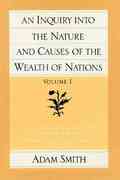4. (8 points total) Suppose Christine just got her bachelor's degree in Economics from Mac. For simplicity, assume that she has two periods in her working life. In each period t, Christine's utility over consumption c: and leisure /, can be expressed as follows: U(c, 41) = Ct'l, +=1,2 In each period, Christine has a total time endowment of T and receives INas non-labor income. Given her period budget constraint, Christine will choose the optimal consumption and leisure bundle (ct, l() that maximizes her period utility. In the first period, she is without a job. If she decides to search for a job in the first period, she receives one job offer in the second period. There are multiple types of jobs in this economy that differ in wages and she will randomly receive a job offer from one of them. Conditional on the job offer in the second period, she decides whether to accept or reject it. If she accepts the job offer, she works during the second period at the wage rate that was offered to her. If she rejects the job offer, she does not work in the second period. Notice that her decision to either accept or reject the job offer affects her second period budget constraint and hence her optimal second period consumption and leisure bundle (c2, 12). If she decides not to search in the first period, she does not receive a job offer in the second period and hence, does not work for both periods. Again, in each period, Christine will choose the optimal consumption and leisure bundle (c, 4) that maximizes her period utility given her period budget constraint. Assume that job search incurs a utility cost of s such that, if Christine decides to search for a job in the first period, her first period utility would be U(ci, li) - s. Christine decides whether to search for a job or not by comparing her expected lifetime utility over the two periods under the two options. Assume that Christine does not discount her second period utility when calculating her expected lifetime utility (i.e., B = 1) . Therefore, Christine's expected lifetime utility is her first period utility, plus her expected second period utility. a) Suppose Christine decides to search for a job in the first period and therefore receives a job offer in the second period. Denote WR as Christine's reservation wage which makes her indifferent between accepting a job offer and not working. Derive the expression for WR. Your answer should be expressed in terms of T and IN. (2 points) Hint: There are two ways to approach this question.. If Christine is working at a wage rate of w in the second period, what would be her second period utility level given her optimal choice of (cz, /2)? What would be her second period utility level if she decides not to work? Visualize Christine's second period indifference curve and budget constraint on a consumption-leisure space. What is the condition for finding WR? b) Now assume that 7-10 and IN=10. Suppose there are two types of jobs in the economy: high and low. Christine's probability of receiving a job offer from each type is 1/4 (high) and 3/4 (low), respectively. Each type pays a wage rate of wi-5 (high) and wz-2.5 (low). Conditional on receiving a job offer in the second period, explain whether she would accept or reject each job type (you will not receive full marks if you simply answer 'accept' or 'reject' for each job type - please explain your reasoning behind your answer). (1 point) Hint: Notice that you can use your answer from part a) to answer part b). c) Based on the values in part (a) and (b), what is the highest job search cost s that Christine is willing to pay? If Christine's search cost is s-30, would it be optimal for her to conduct a search or not? Explain. (3 points) d) Now consider an alternative economy that is exactly the same as described above except that the government provides cash benefits each period for all individuals in the economy. This increases Christine's period non-labor income to IN+b. Derive the expression for Christine's reservation wage under this alternative economy. Your answer should be expressed in terms of T, IN, and b. (1 point) e) Suppose b=20. Assume that T, IN, the job offer probability and the offered wage rate from each job type are the same as in part (b). Conditional on receiving a job offer in the second period, explain whether she would accept or reject each job type. (1 point)








